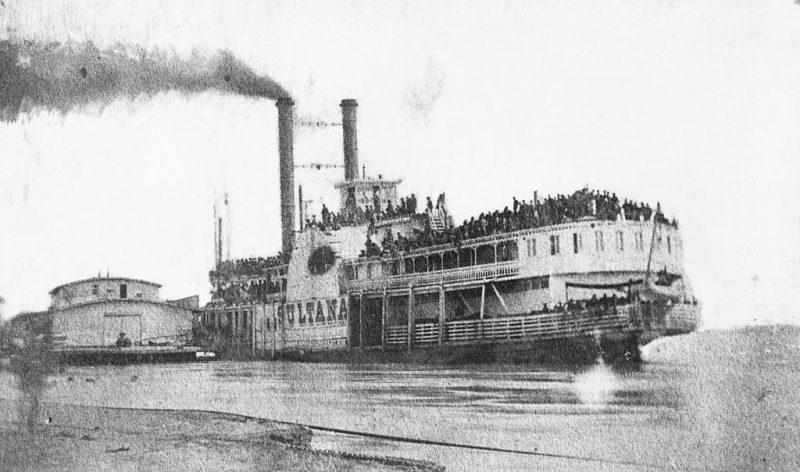It has often been shown in history that those who fight some of the fiercest battles can sometimes get engulfed by death and destruction even after their ordeal had apparently ended.
The forgotten fate of around 1,800 union soldiers who gladly boarded a steamboat in the aftermath of the fall of the Confederacy had no idea that despite their escape from hell, a new kind of hell awaited them in the icy Mississippi river.
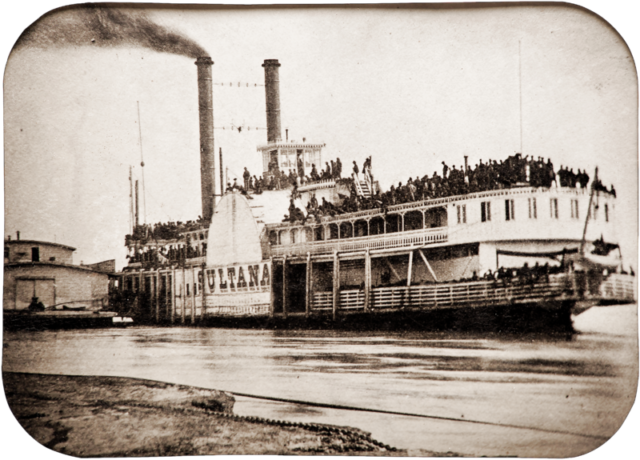
Around the time of the American Civil War, the steamboats were regarded as both a boom for the local town’s economies and a potentially dangerous mode of transportation. At the time, people and authorities gave more priority to the economy over the safety of the locals.
The steamboats carried the stigma of water travel, as it is always not an easy endeavour on a wooden boat, especially if the water it travels in is a raging river. These boats were not adequately sanitised, and conditions were not great health and safety wise.

On top of all these flaws, a seemingly negligible factor became dangerous when you consider that these boats ran on power generated by fire and water pressure: a potentially deadly combination if luck isn’t on your side.
The added element of danger gets even more alarming when one considers that these boats were not regulated by the authorities until a large number of disasters and scores of human lives had been lost.
The Steamboat Sultana was no exception and carried all the potential dangers mentioned above when it carried over 2,000 Union soldiers who had been recently released to their homes after the end of the deadly American Civil War.
The boat exploded near Memphis, and the wooden ship was quickly engulfed by a massive inferno, killing most of the men instantly while others drowned and died of hypothermia. The Sultana was heading down the Mississippi River and was a side-wheel steamboat.
The explosion of the Sultana on 27, April 1865 is considered the greatest maritime disaster in the history of United States. Out of an estimated 2,427 souls on board the Sultana, only a handful could survive, more than 1,800 soldiers along with some crew members perished in the disaster when the boat exploded and sank near Memphis, Tennessee.
The disaster of the Sultana, despite the high death toll, did not receive the deserved press attention due to the news of the killing of President Lincoln’s assassin John Wilkes Booth a day before the disaster.
Built in 1863 by the John Litherbury Boatyard in Cincinnati, the wooden steamboat was initially used for the lower Mississippi cotton trade.

Most of the new passengers were Union soldiers, chiefly from Ohio and just released from Confederate prison camps such as Cahawba and Andersonville
Weighing around 1719 tons, the steamer often carried no more than eighty-five crew during its two years on the route between New Orleans and St. Louis mostly commissioned to carry troops.
Captain J. Cass Mason was commanding the steamer when it left St. Louis on 13, April 1865 bound for New Orleans.
When the boat arrived at Cairo, Illinois, two days later Mason heard about the assassination of President Lincoln and decided to collect as many newspapers as possible to carry the news south, as lack of communication between south and north meant most folks in the south were not aware of the news.
When Mason arrived at Vicksburg, Mississippi he was met by Lt. Col Reuben Hatch who had a very lucrative offer for Mason, an offer that he could not refuse to accept.
Thousands of recently released union soldiers had been brought to Vicksburg to be transported to the Northern states to their homes, and the government was willing to pay a handsome amount of money for the boats who would carry them to the North.
Hatch offered to provide Mason with a large number of soldiers that he could then take to the North, in return for a share for Hatch, Mason whole-heartedly accepted the offer.
When Mason left for the North on his wooden steamboat, he was carrying more than 2,100 paroled prisoners while the capacity of the boat was only just over 360 people.
When the boat left Vicksburg on the night of April 25, 1865, it was heavily overcrowded but greed compelled Mason to take the risk despite the fact that a mechanic had advised Mason to stay another week to get the boilers fixed that were seemingly weak and had a potential to cause a leak on the journey.
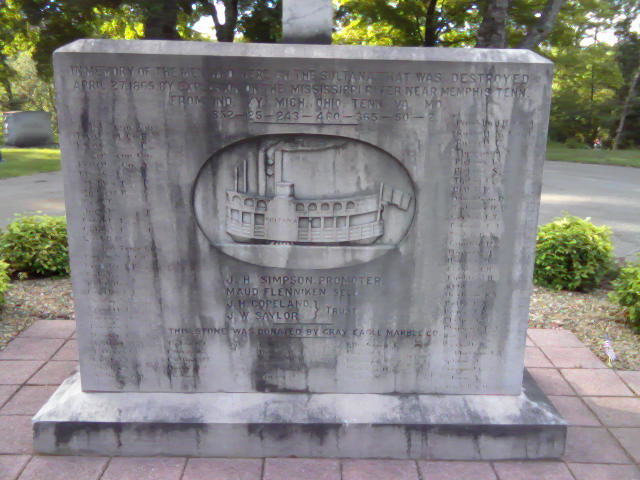
Mason overlooked the advice and set off towards North with men packed into every available space and the overflow was so severe that the structure had started creaking and breaking at some places.
Sultana did manage to cover the greater part of the journey: however, when the steamer was a mere seven miles north of Memphis on April 27, the boilers of the boat suddenly exploded with a large bang at 2am in the morning. Initially only one out of four boilers exploded and seconds later the second boiler also gave way and exploded, and a few minutes later the remaining two boilers also followed the suit.
The weak boilers and the violent shaking of the boat built too much pressure inside the boilers; the lack of water in the boilers increased the pressure even more and caused the explosion.
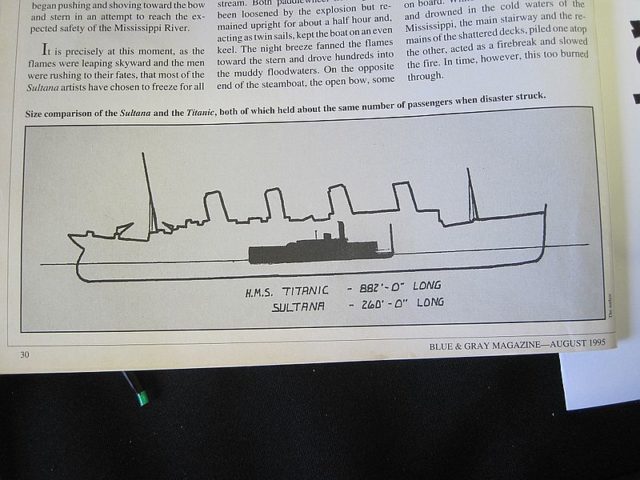
The massive explosion flung most of the soldiers from the deck of the ship into the icy water, destroying a large portion of the ship and rendering it devastated.
Those who survived the initial explosion panicked and jumped into the water, hanging onto anything they could find floating around them. However, their weakened condition meant most of the soldiers were not able to fight for too long and soon lost the battle for life.
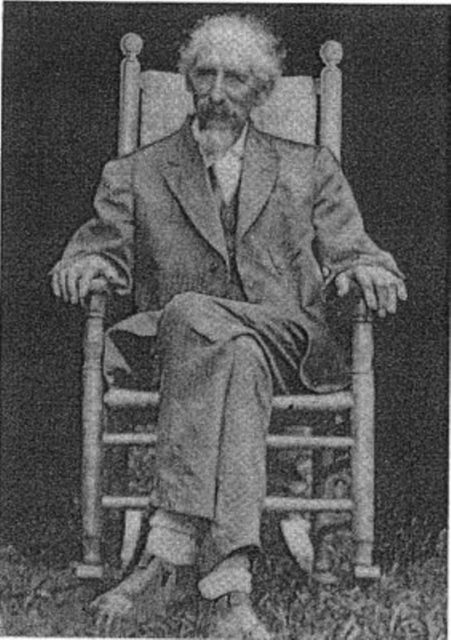
The exact death toll of the Sultana disaster was never found. However, most recent researchers have indicated the deaths to be around 1,700, 200 more than the 1500 deaths attributed to the cruise liner Titanic disaster in the North Atlantic nearly half a century later.
United States Customs Service concluded that the final count of the perished was 1,800, with just 550 survivors.
